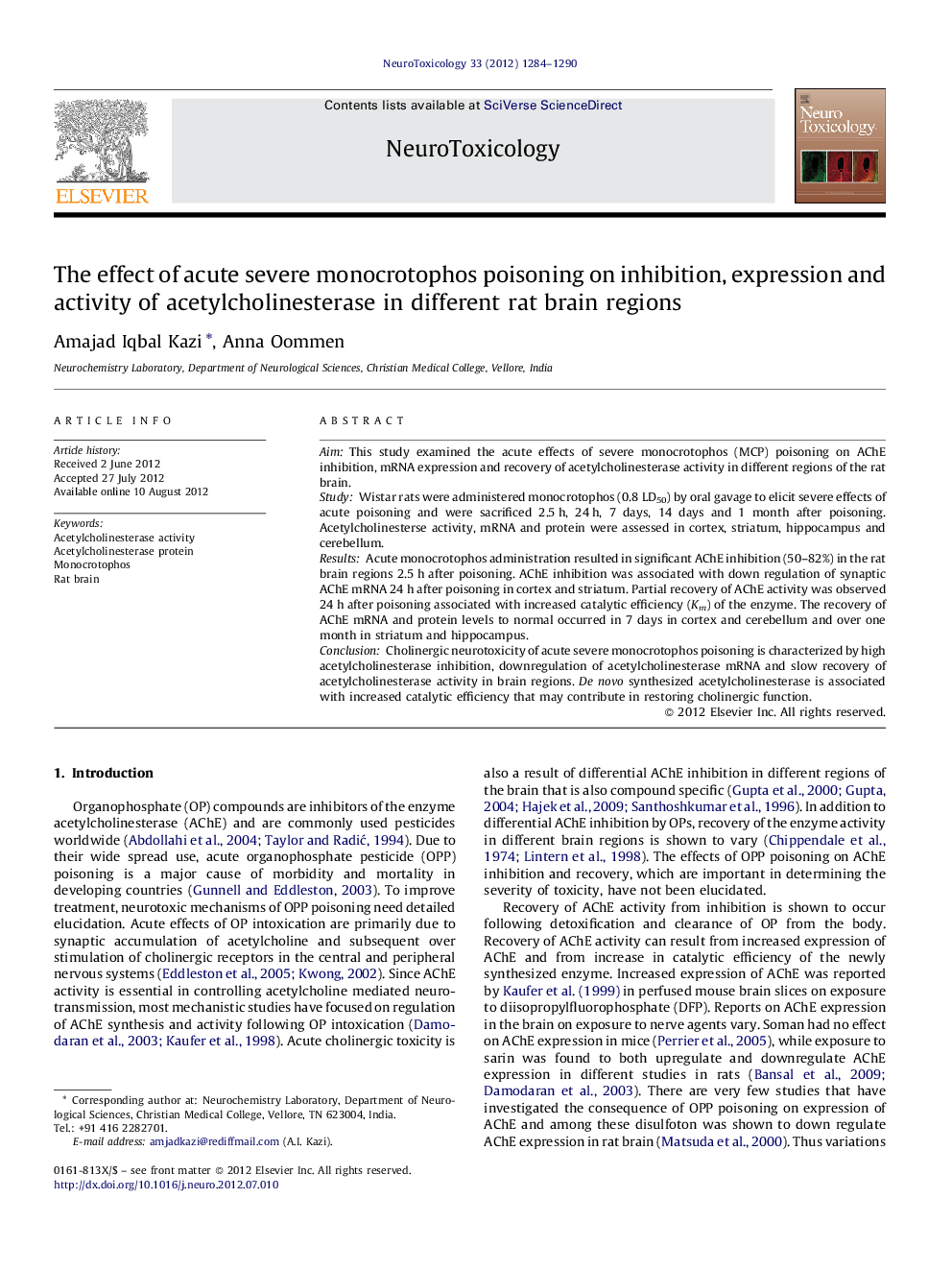| Article ID | Journal | Published Year | Pages | File Type |
|---|---|---|---|---|
| 5855266 | NeuroToxicology | 2012 | 7 Pages |
AimThis study examined the acute effects of severe monocrotophos (MCP) poisoning on AChE inhibition, mRNA expression and recovery of acetylcholinesterase activity in different regions of the rat brain.StudyWistar rats were administered monocrotophos (0.8Â LD50) by oral gavage to elicit severe effects of acute poisoning and were sacrificed 2.5Â h, 24Â h, 7 days, 14 days and 1 month after poisoning. Acetylcholinesterse activity, mRNA and protein were assessed in cortex, striatum, hippocampus and cerebellum.ResultsAcute monocrotophos administration resulted in significant AChE inhibition (50-82%) in the rat brain regions 2.5Â h after poisoning. AChE inhibition was associated with down regulation of synaptic AChE mRNA 24Â h after poisoning in cortex and striatum. Partial recovery of AChE activity was observed 24Â h after poisoning associated with increased catalytic efficiency (Km) of the enzyme. The recovery of AChE mRNA and protein levels to normal occurred in 7 days in cortex and cerebellum and over one month in striatum and hippocampus.ConclusionCholinergic neurotoxicity of acute severe monocrotophos poisoning is characterized by high acetylcholinesterase inhibition, downregulation of acetylcholinesterase mRNA and slow recovery of acetylcholinesterase activity in brain regions. De novo synthesized acetylcholinesterase is associated with increased catalytic efficiency that may contribute in restoring cholinergic function.
⺠Acute monocrotophos poisoning downregulated AChE mRNA expression in rat brain regions. ⺠Neurotoxicity involves slow recovery of AChE in brain regions that exhibit high AChE inhibition. ⺠The de novo synthesized enzyme is associated with increased catalytic efficiency.
